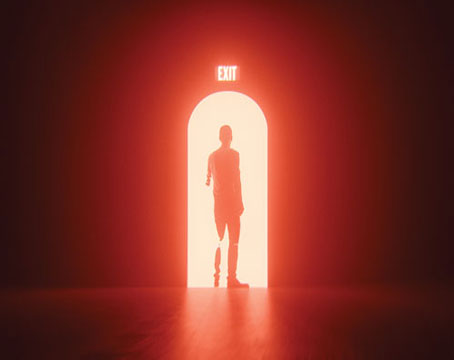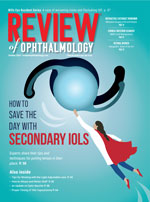 |
| Photo: Getty Images. |
As physicians, we tend to see people in less-than-their-best moments. Aside from our “well vision” exams, most of our patients come to us with a problem or, in so many cases, lots of problems—many eye problems, many medical problems, and not infrequently psychosocial ones as well. I guess it sort of depends on where and what type of practice you have.
In my urban setting, it’s quite a cross-section, with a very definite emphasis on the elderly and infirm. Diagnosing and fixing their eye issues is mostly an easy chore. Wrangling their other issues—not so simple. Most of us have seen more than our fair share of diabetic retinopathy in patients who refuse or are simply unable to control their blood sugar. We spend a lot of time staying up to date on best practices for treating PDR/DME; we know what to do, what works and what doesn’t. How do we make our efforts bear fruit if we can’t also get the patient to do better with their blood sugar or even come into the office? We can’t ignore the non-ophthalmic components of our patients’ lives that impact their response to health-care interventions. It’s even more challenging in the very elderly group, especially those with poor or absent support systems.
As the population grows older, we’re seeing an increasing number who are alone or almost alone and many with varying degrees of cognitive dysfunction. How do they survive in a complex society? How do they deal with their health insurance, their pharmacy benefits, transportation, appointments and home care? I find it tough at times to manage all those and can’t fathom how an 85-year-old by themselves can. Think of the patients who can’t administer their glaucoma drops hitting their eye perfectly with one drop so they don’t run out of meds before the month is over, or the cataract patient who needs preop clearance from a cardiologist who’s booked up for six months, so their cataract surgery will have to wait. A six-month delay is a large percentage of some people’s remaining lifespan. You or I would be able to wrangle an appointment, but who advocates for these individuals?
Just this week I entered my office to see preop cataract patients and among the eagerly waiting there were two very elderly, frail, disheveled women, one with her walker. That was my patient, the other her sister. They lived together and had no other friends or family. They came in because the one couldn’t see well and they wanted her eyes checked for cataracts. Her vision was CF and 20/400. She was the driver … and still driving. I told them that we could do surgery to hopefully get back useful vision so that she could potentially drive again. I was also struggling to imagine how her arthritic legs and back would allow her to manage the pedals and the steering wheel even with good vision. I also had to tell them that she couldn’t drive in her current condition. They were distraught. They had no other way to shop for food or other essentials.
As my staff started to reach out to the social worker to try to help them with a solution, I was reminded how perilous their lives were. With all its warts, we have created an amazing health-care ecosystem. What we haven’t done is have a structure that ensures everyone can access it. Yes, finances are a big factor, but the simple ergonomics escape so many. I reflected on how fortunate I was to have my health, and a strong social network of family and friends. But for how long? Eventually, the end comes for all of us. Not having to face it sick and alone is a gift from above. We are at times reminded that not everyone is so lucky.
Dr. Blecher is an attending surgeon at Wills Eye Hospital.




